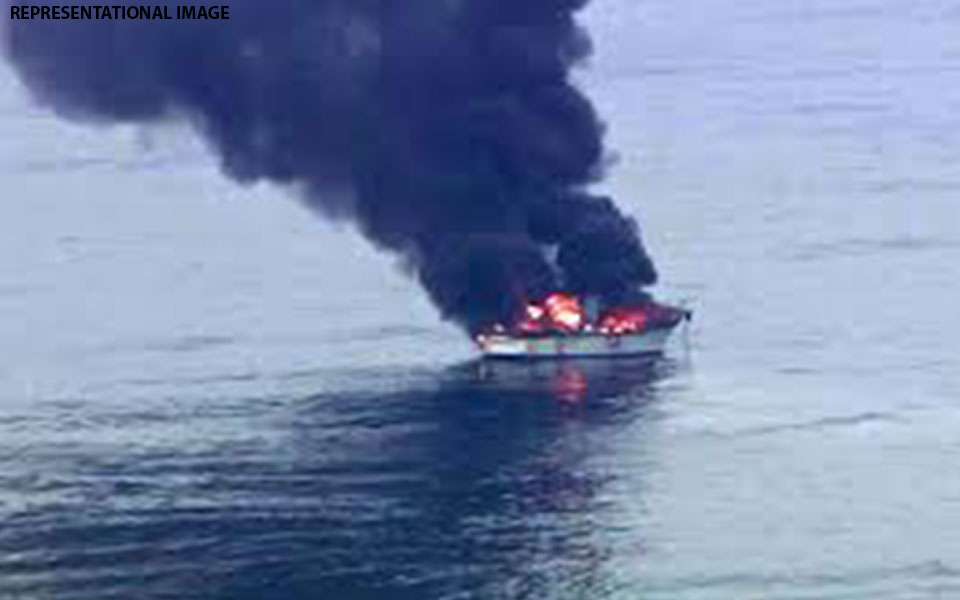Vijayawada, May 11: At least 120 tourists had a narrow escape when a boat caught fire on the Godavari river in Andhra Pradesh's East Godavari district on Friday, police said.
The incident occurred when the tourists were on a boat ride to Papikondalu, known for its wildlife sanctuary and hills.
Some of the tourists were injured as they jumped to safety after the driver brought the boat to the shore. A few tourists became unconscious due to the shock, police said.
The fire broke out when tea was being prepared on a gas stove. The gas leak apparently caused the fire, spreading panic among the tourists including women and children.
Survivors said the gas cylinder then exploded, making the fire spread. Showing presence of mind, the driver wheeled the boat towards the shore. The passengers managed to escape but the entire boat was gutted.
Locals and the police in Veeravarapu Lanka village helped the shocked tourists. The fire broke out 10 minutes after the boat sailed from Poshammagudi.
Andhra Pradesh tourism department officials said the boat belonged to a private operator. They have ordered an investigation if it was being operated with the permission of the authorities concerned.
Chief Minister N. Chandrababu Naidu directed the East Godavari district collector to provide all necessary assistance to the tourists.
Let the Truth be known. If you read VB and like VB, please be a VB Supporter and Help us deliver the Truth to one and all.
Panaji (PTI): As part of a crackdown against tourist establishments violating laws and safety norms in the aftermath of the Arpora fire tragedy, Goa authorities on Saturday sealed a renowned club at Vagator and revoked the fire department NOC of another club.
Cafe CO2 Goa, located on a cliff overlooking the Arabian Sea at Vagator beach in North Goa, was sealed. The move came two days after Goya Club, also in Vagator, was shut down for alleged violations of rules.
Elsewhere, campaigning for local body polls, AAP leader Arvind Kejriwal said the fire incident at Birch by Romeo Lane nightclub at Arpora, which claimed 25 lives on December 6, happened because the BJP government in the state was corrupt.
An inspection of Cafe CO2 Goa by a state government-appointed team revealed that the establishment, with a seating capacity of 250, did not possess a no-objection certificate (NOC) of the Fire and Emergency Services Department. The club, which sits atop Ozrant Cliff, also did not have structural stability, the team found.
The Fire and Emergency Services on Saturday also revoked the NOC issued to Diaz Pool Club and Bar at Anjuna as the fire extinguishers installed in the establishment were found to be inadequate, said divisional fire officer Shripad Gawas.
A notice was issued to Nitin Wadhwa, the partner of the club, he said in the order.
Campaigning at Chimbel village near Panaji in support of his party's Zilla Panchayat election candidate, Aam Aadmi Party leader Kejriwal said the nightclub fire at Arpora happened because of the "corruption of the Pramod Sawant-led state government."
"Why this fire incident happened? I read in the newspapers that the nightclub had no occupancy certificate, no building licence, no excise licence, no construction licence or trade licence. The entire club was illegal but still it was going on," he said.
"How could it go on? Couldn't Pramod Sawant or anyone else see it? I was told that hafta (bribe) was being paid," the former Delhi chief minister said.
A person can not work without bribing officials in the coastal state, Kejriwal said, alleging that officers, MLAs and even ministers are accepting bribes.





